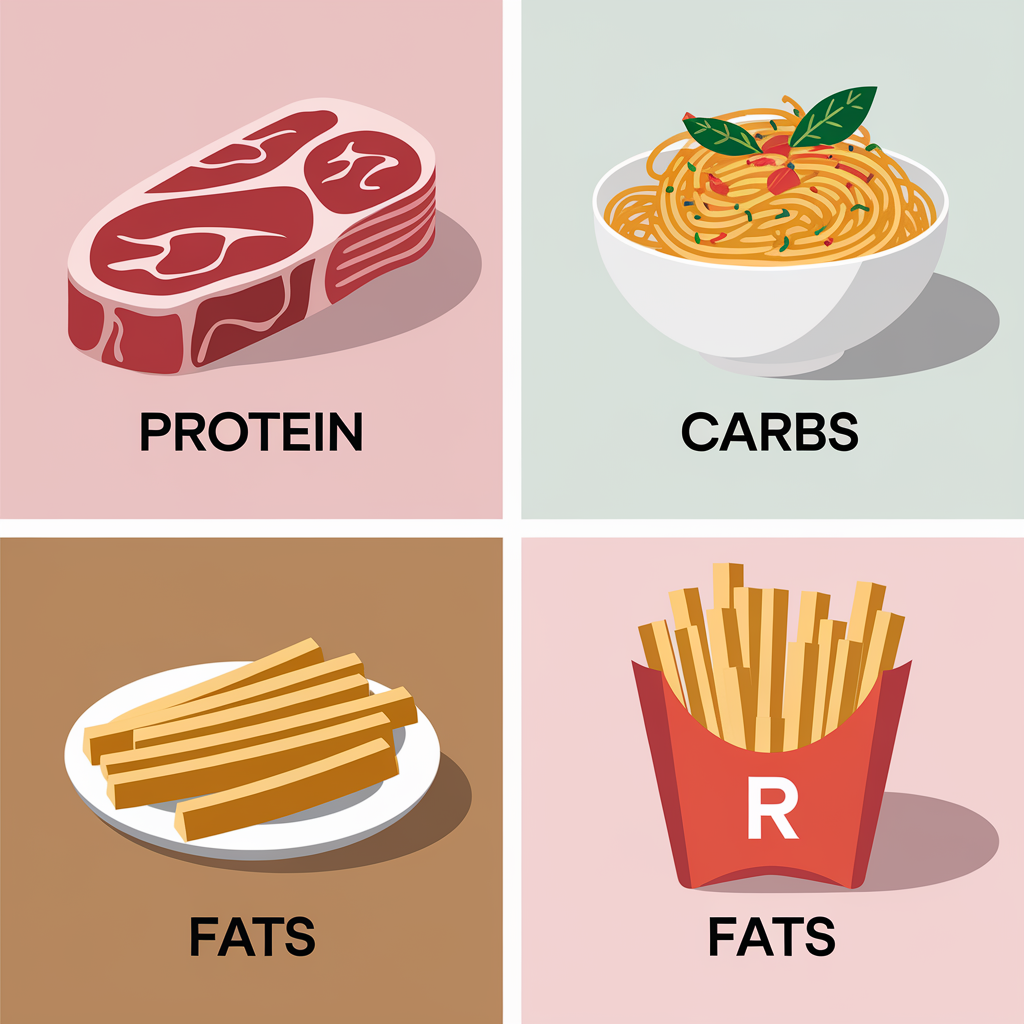
Macronutrients are the essential components of our diet that provide energy and support various bodily functions. The three primary macronutrients – proteins, carbohydrates, and fats – each serve unique roles in promoting overall health. Gaining a clear understanding of these nutrients can help you create a balanced, nutritious diet that supports your wellness journey. Understanding Macronutrients: Protein, Carbs, and Fats
What Are Macronutrients?
Macronutrients are nutrients that the body requires in substantial amounts to function efficiently. Unlike vitamins and minerals, which are needed in smaller quantities, macronutrients supply the calories that fuel our bodies and maintain various physiological processes. Understanding Macronutrients: Protein, Carbs, and Fats
The main macronutrients include:
- Protein
- Carbohydrates
- Fats
Protein: The Building Block of Life
Proteins are essential for building, repairing, and maintaining tissues. They play a crucial role in muscle growth, enzyme production, and immune system support. Proteins are made up of amino acids, some of which the body cannot produce, known as essential amino acids. You can obtain these from sources like lean meats, fish, eggs, beans, and dairy products.
Incorporating diverse protein sources in your diet ensures you receive all essential amino acids, promoting muscle health and overall bodily function. Understanding Macronutrients: Protein, Carbs, and Fats
Carbohydrates: The Body’s Energy Source
Carbohydrates are the primary energy providers for your body. When consumed, they are converted into glucose, which powers the brain, muscles, and organs. Carbs are classified into two types:
- Simple Carbs: These provide quick energy but are often low in nutritional value. They are found in sugary foods and refined grains.
- Complex Carbs: These are packed with nutrients and provide sustained energy. Sources include whole grains, vegetables, and legumes.
Choosing complex carbohydrates over simple ones helps stabilize blood sugar levels and promotes long-term energy.
Fats: Vital for Health and Wellness
Despite their negative reputation, fats are essential for various functions, including hormone production, brain health, and nutrient absorption. Fats are divided into three categories:
- Saturated Fats: Found mostly in animal products; should be consumed sparingly.
- Unsaturated Fats: Heart-healthy fats found in foods like olive oil, avocados, and nuts.
- Trans Fats: Artificial fats present in some processed foods; best avoided for better health.
Incorporating healthy fats in your diet supports overall wellness and provides a reliable energy source.
Achieving the Right Balance
A healthy, balanced diet involves consuming the right proportion of macronutrients. While individual needs vary based on factors like age, activity level, and health goals, a general recommendation is to get 45-65% of your calories from carbohydrates, 20-35% from fats, and 10-35% from protein. Understanding Macronutrients: Protein, Carbs, and Fats
Conclusion
Understanding macronutrients is key to making smart dietary choices. By balancing proteins, carbs, and fats, you can improve your energy levels, enhance physical performance, and support your body’s essential functions. Make informed choices to lead a healthier, more vibrant life. Understanding Macronutrients: Protein, Carbs, and Fats